We carry an interview with newly appointed Minister for Agriculture, Food and the Marine Barry Cowen this week. Few had expected the Laois-Offaly TD to be appointed to the role but just a few days into the job, he is proving himself to have a solid understanding of the sector.
Cowen is also a politician with a track record of ensuring that his voice is heard and opinions are taken on board. Both will be important traits in making sure the voice of the sector does not get drowned out around a noisy Cabinet table and in ensuring the sector is strongly defended in the public arena.
We have already seen some evidence of capacity in this regard. At Monday’s EU farm council meeting, a clear message was delivered on the need for an enhanced CAP budget while a staunch public defence of the sector’s environmental credentials has been mounted.
Perhaps unlike his predecessor Michael Creed, Minister Cowen is fortunate to take over the reins at a time when the sector has some positive political momentum behind it. While uncomfortable at the time, the extent to which the sector was put under the spotlight during government formation talks appears to have given many within Leinster House a new appreciation as to its economic importance and a better understanding as to the complexity of climate change and food production.
As Phelim O’Neill reports, the importance of indigenous industry – including agri food – was reinforced in a recent ESRI reportin a recent ESRI report on Understanding Recent Trends in the Irish Economy.
It will be down to Minister Cowen to make sure the support package for agriculture represents the financial impact
It will be critical for farmers that the minister can build on this momentum if he is to effect real change and turn the aspirations outlined in the Programme for Government into solid actions. To do this he must stay focused on the big issues.
There will be many demands on him but one of his strategic priorities must be to deliver on the new Government’s commitment to conduct a review of greenhouse gas emissions on a consumption basis, with the goal of ensuring that Irish and EU action to reduce emissions supports emission reductions globally as well as within territories.
Moving from a flawed production-based emissions model, focused on achieving national targets, to a consumption-based approach that recognises the need to reduce emissions from global food production would have a radical impact on Irish agriculture and the shape of the next CAP.
Delivery would shift the direction of agricultural policy at national and EU level towards supporting carbon-efficient food production models – such as Ireland’s grass-based beef and dairy systems. It would expose the flawed narrative of reducing our national livestock herd simply to achieve national emissions targets with no regard as to the negative impact on global emissions. The focus of policy would move to support sectors to optimise production while meeting EU targets in relation to air and water quality, and biodiversity.
Brexit
Meanwhile, neither Minister Cowen nor the Government can look beyond the importance of ensuring the Irish economy is protected from the fallout of Brexit.
The UK government appears determined to either take negotiations down to the wire or – worse still – crash out of the EU without a deal. The agriculture sector is by far one of the most exposed within the country. The financial impact of a no-deal scenario has been shown to be almost €2bn. Even in the event of a deal, the value of the UK market as an export destination for Irish beef is likely to be severely eroded by imports (more below).
A strategy of hoping for the best is not an option. Newly appointed Taoiseach Micheál Martin must quickly pick up from where Leo Varadkar left off in demanding that Ireland’s unique exposure to Brexit is reflected in the country’s share of the €750bn EU coronavirus economic recovery package. It will then be down to Minister Cowen to make sure the support package for agriculture represents the scale of the financial impact.
Finally, we wish outgoing minister for agriculture Michael Creed every success into the future. He presided over a challenging period for the sector, during which the severe impact of CAP convergence on the income of suckler and tillage farmers was crystallised. On occasions he faced much criticism – sometimes merited but often reflective of the fact that he tried to do what was in the long-term interests of the sector regardless of the short-term political fallout.
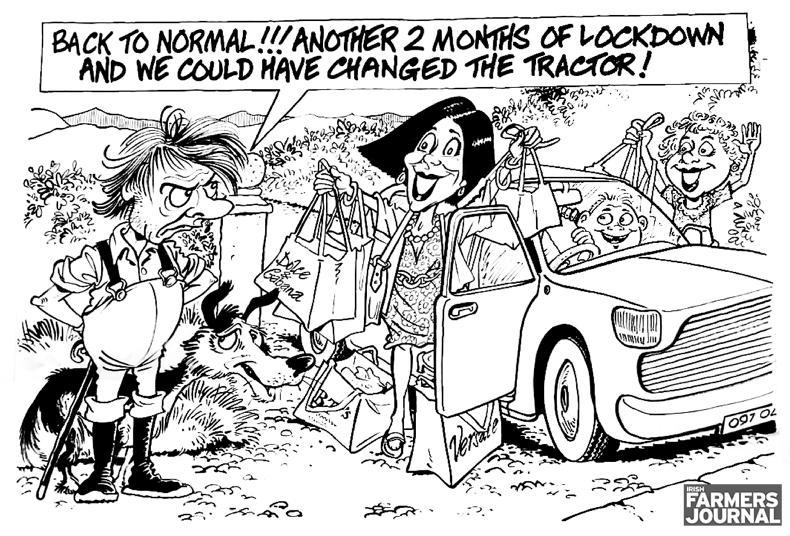
\ Jim Cogan
Farm finance: making financial data a key part of management decisions
This week, Teagasc released the National Farm Survey (NFS) data for 2019. The income divide between dairying and other sectors reinforces the importance of making sure the pathway for growth remains open. We must continue to allow farmers the opportunity to maximise the financial return from their land asset by converting it into dairying if desired.
The data should play a central role in shaping the next CAP. The economic viability of our tillage, suckler and sheep sectors are all reliant on CAP supports. This reflects the extent to which all three sectors have become increasingly exposed to world market prices and yet forced to incur the costs of complying with EU standards. The impact is most evident in tillage where, in 2010, family farm income was 87% of that achieved on dairy farms; in 2019, it was just over 50%.
While recognising the importance of the NFS, we should examine how the collection of financial data can be made more valuable at farm level. How relevant is NFS data or indeed Teagasc profit monitor analysis where the data is retrospective and released six to nine months after year end?
As Lorcan Allen reports, ifac, with the support of Bank of Ireland, has released a financial accounts package that generates real-time data on individual farms. The real-time nature of it will allow farmers harness the power of data to inform key management decisions and monitor financial progress throughout the year. Meanwhile, real-time aggregated data will allow for the impact of market or weather events to be calculated instantly across sectors. The introduction of the ifac FarmPro package should trigger a review of how Teagasc analyses financial data and how more value can be created at farm level to drive uptake.
Brexit: consequences crystallised
Face-to-face negotiations between the UK and EU on a future trade deal started again this week. This is the first of five intensive rounds before the end of July and a final sixth one in the middle of August. By then, it will be clearer if common ground can be found that maintains something close to current trading arrangements. The signs are not good, with the UK having launched parallel negotiations with the US, Australia and New Zealand.
The National Farmers’ Union believes the establishment of a Trade and Agriculture Commission that can make recommendations on trade and standards will keep hormone beef and chlorinated chicken out. It will be interesting to see how this holds when the US puts the squeeze on.
Meanwhile, as Phelim O’Neill highlights, the strategy document for the Australia and New Zealand negotiations reveals that the UK expects a surge in beef and sheepmeat imports if a comprehensive trade agreement is reached.
Imports from Australia and New Zealand are predicted to increase by 83% and 40% respectively, driven largely by increased volumes of beef and lamb. With the UK freely trading access to its market for beef and lamb, it is inevitable that Irish product will be either displaced or see prices squeezed to such an extent that it isn’t commercially viable.
It is clear that the consequences of Brexit for Irish farmers will be the erosion of value in the UK market.
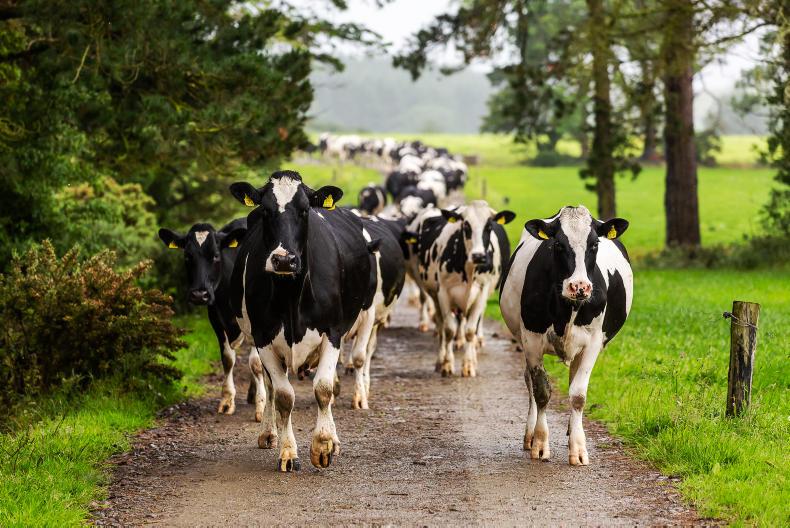
Dairy: positive indications for milk prices
After the initial shock to markets caused by COVID-19, it’s hugely encouraging to see the V-shaped recovery in global dairy markets over recent weeks. European butter prices are now back to where they were prior to COVID-19 and cheese prices are equally in a healthy state.
Co-ops were forced to make swift adjustments to milk prices for March and April due to COVID-19 but dairy farmers should have confidence that milk prices for the rest of this milking season will begin to creep higher, especially with food-service demand now returning.
We carry an interview with newly appointed Minister for Agriculture, Food and the Marine Barry Cowen this week. Few had expected the Laois-Offaly TD to be appointed to the role but just a few days into the job, he is proving himself to have a solid understanding of the sector.
Cowen is also a politician with a track record of ensuring that his voice is heard and opinions are taken on board. Both will be important traits in making sure the voice of the sector does not get drowned out around a noisy Cabinet table and in ensuring the sector is strongly defended in the public arena.
We have already seen some evidence of capacity in this regard. At Monday’s EU farm council meeting, a clear message was delivered on the need for an enhanced CAP budget while a staunch public defence of the sector’s environmental credentials has been mounted.
Perhaps unlike his predecessor Michael Creed, Minister Cowen is fortunate to take over the reins at a time when the sector has some positive political momentum behind it. While uncomfortable at the time, the extent to which the sector was put under the spotlight during government formation talks appears to have given many within Leinster House a new appreciation as to its economic importance and a better understanding as to the complexity of climate change and food production.
As Phelim O’Neill reports, the importance of indigenous industry – including agri food – was reinforced in a recent ESRI reportin a recent ESRI report on Understanding Recent Trends in the Irish Economy.
It will be down to Minister Cowen to make sure the support package for agriculture represents the financial impact
It will be critical for farmers that the minister can build on this momentum if he is to effect real change and turn the aspirations outlined in the Programme for Government into solid actions. To do this he must stay focused on the big issues.
There will be many demands on him but one of his strategic priorities must be to deliver on the new Government’s commitment to conduct a review of greenhouse gas emissions on a consumption basis, with the goal of ensuring that Irish and EU action to reduce emissions supports emission reductions globally as well as within territories.
Moving from a flawed production-based emissions model, focused on achieving national targets, to a consumption-based approach that recognises the need to reduce emissions from global food production would have a radical impact on Irish agriculture and the shape of the next CAP.
Delivery would shift the direction of agricultural policy at national and EU level towards supporting carbon-efficient food production models – such as Ireland’s grass-based beef and dairy systems. It would expose the flawed narrative of reducing our national livestock herd simply to achieve national emissions targets with no regard as to the negative impact on global emissions. The focus of policy would move to support sectors to optimise production while meeting EU targets in relation to air and water quality, and biodiversity.
Brexit
Meanwhile, neither Minister Cowen nor the Government can look beyond the importance of ensuring the Irish economy is protected from the fallout of Brexit.
The UK government appears determined to either take negotiations down to the wire or – worse still – crash out of the EU without a deal. The agriculture sector is by far one of the most exposed within the country. The financial impact of a no-deal scenario has been shown to be almost €2bn. Even in the event of a deal, the value of the UK market as an export destination for Irish beef is likely to be severely eroded by imports (more below).
A strategy of hoping for the best is not an option. Newly appointed Taoiseach Micheál Martin must quickly pick up from where Leo Varadkar left off in demanding that Ireland’s unique exposure to Brexit is reflected in the country’s share of the €750bn EU coronavirus economic recovery package. It will then be down to Minister Cowen to make sure the support package for agriculture represents the scale of the financial impact.
Finally, we wish outgoing minister for agriculture Michael Creed every success into the future. He presided over a challenging period for the sector, during which the severe impact of CAP convergence on the income of suckler and tillage farmers was crystallised. On occasions he faced much criticism – sometimes merited but often reflective of the fact that he tried to do what was in the long-term interests of the sector regardless of the short-term political fallout.

\ Jim Cogan
Farm finance: making financial data a key part of management decisions
This week, Teagasc released the National Farm Survey (NFS) data for 2019. The income divide between dairying and other sectors reinforces the importance of making sure the pathway for growth remains open. We must continue to allow farmers the opportunity to maximise the financial return from their land asset by converting it into dairying if desired.
The data should play a central role in shaping the next CAP. The economic viability of our tillage, suckler and sheep sectors are all reliant on CAP supports. This reflects the extent to which all three sectors have become increasingly exposed to world market prices and yet forced to incur the costs of complying with EU standards. The impact is most evident in tillage where, in 2010, family farm income was 87% of that achieved on dairy farms; in 2019, it was just over 50%.
While recognising the importance of the NFS, we should examine how the collection of financial data can be made more valuable at farm level. How relevant is NFS data or indeed Teagasc profit monitor analysis where the data is retrospective and released six to nine months after year end?
As Lorcan Allen reports, ifac, with the support of Bank of Ireland, has released a financial accounts package that generates real-time data on individual farms. The real-time nature of it will allow farmers harness the power of data to inform key management decisions and monitor financial progress throughout the year. Meanwhile, real-time aggregated data will allow for the impact of market or weather events to be calculated instantly across sectors. The introduction of the ifac FarmPro package should trigger a review of how Teagasc analyses financial data and how more value can be created at farm level to drive uptake.
Brexit: consequences crystallised
Face-to-face negotiations between the UK and EU on a future trade deal started again this week. This is the first of five intensive rounds before the end of July and a final sixth one in the middle of August. By then, it will be clearer if common ground can be found that maintains something close to current trading arrangements. The signs are not good, with the UK having launched parallel negotiations with the US, Australia and New Zealand.
The National Farmers’ Union believes the establishment of a Trade and Agriculture Commission that can make recommendations on trade and standards will keep hormone beef and chlorinated chicken out. It will be interesting to see how this holds when the US puts the squeeze on.
Meanwhile, as Phelim O’Neill highlights, the strategy document for the Australia and New Zealand negotiations reveals that the UK expects a surge in beef and sheepmeat imports if a comprehensive trade agreement is reached.
Imports from Australia and New Zealand are predicted to increase by 83% and 40% respectively, driven largely by increased volumes of beef and lamb. With the UK freely trading access to its market for beef and lamb, it is inevitable that Irish product will be either displaced or see prices squeezed to such an extent that it isn’t commercially viable.
It is clear that the consequences of Brexit for Irish farmers will be the erosion of value in the UK market.

Dairy: positive indications for milk prices
After the initial shock to markets caused by COVID-19, it’s hugely encouraging to see the V-shaped recovery in global dairy markets over recent weeks. European butter prices are now back to where they were prior to COVID-19 and cheese prices are equally in a healthy state.
Co-ops were forced to make swift adjustments to milk prices for March and April due to COVID-19 but dairy farmers should have confidence that milk prices for the rest of this milking season will begin to creep higher, especially with food-service demand now returning.







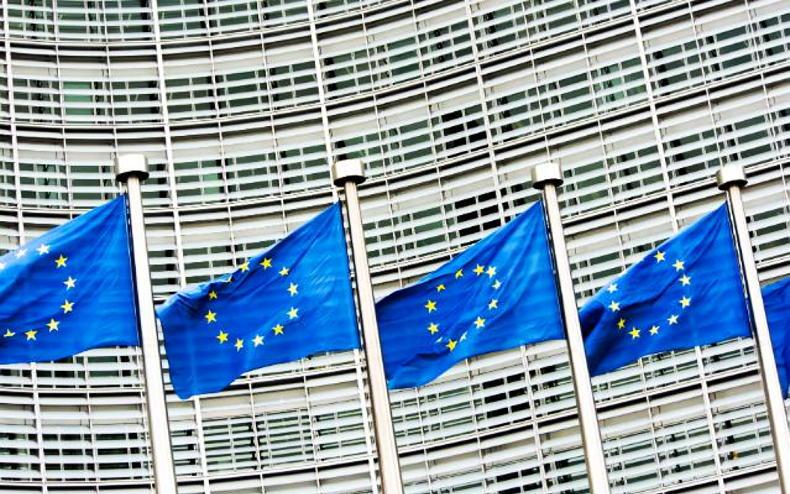

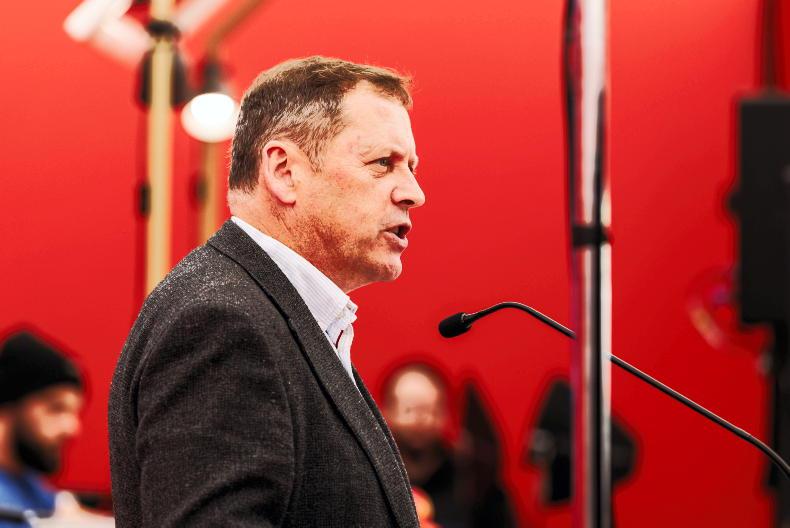
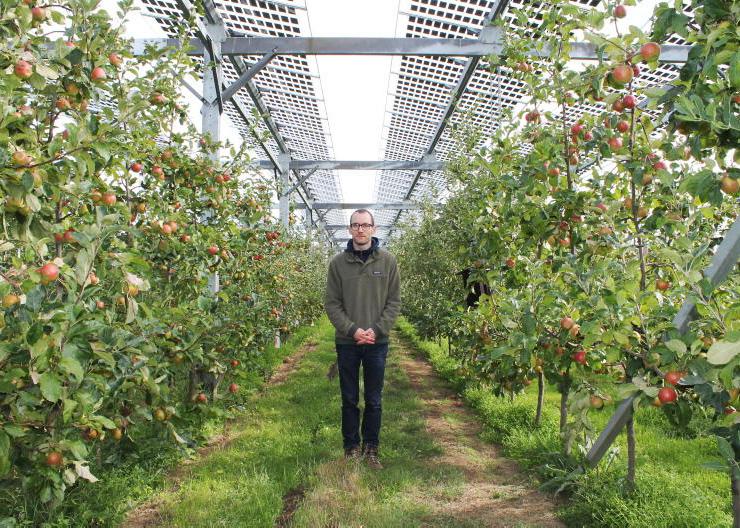
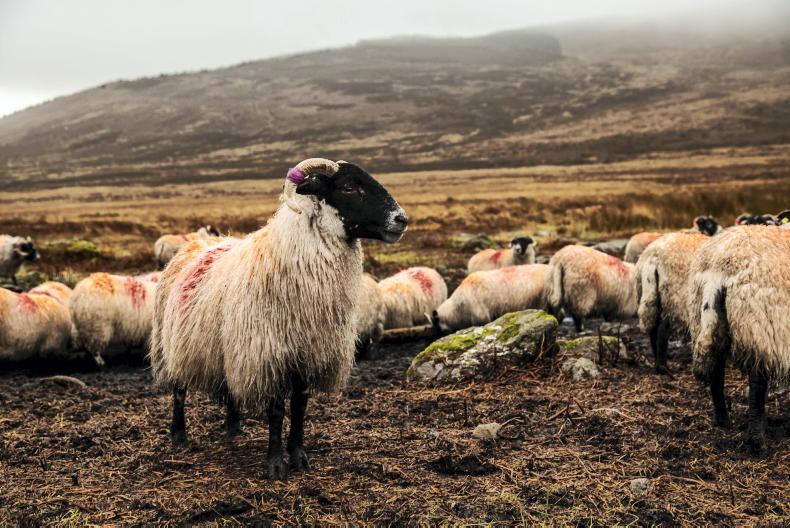
SHARING OPTIONS